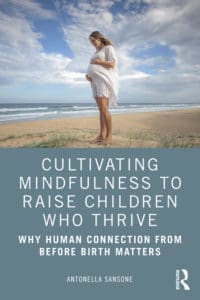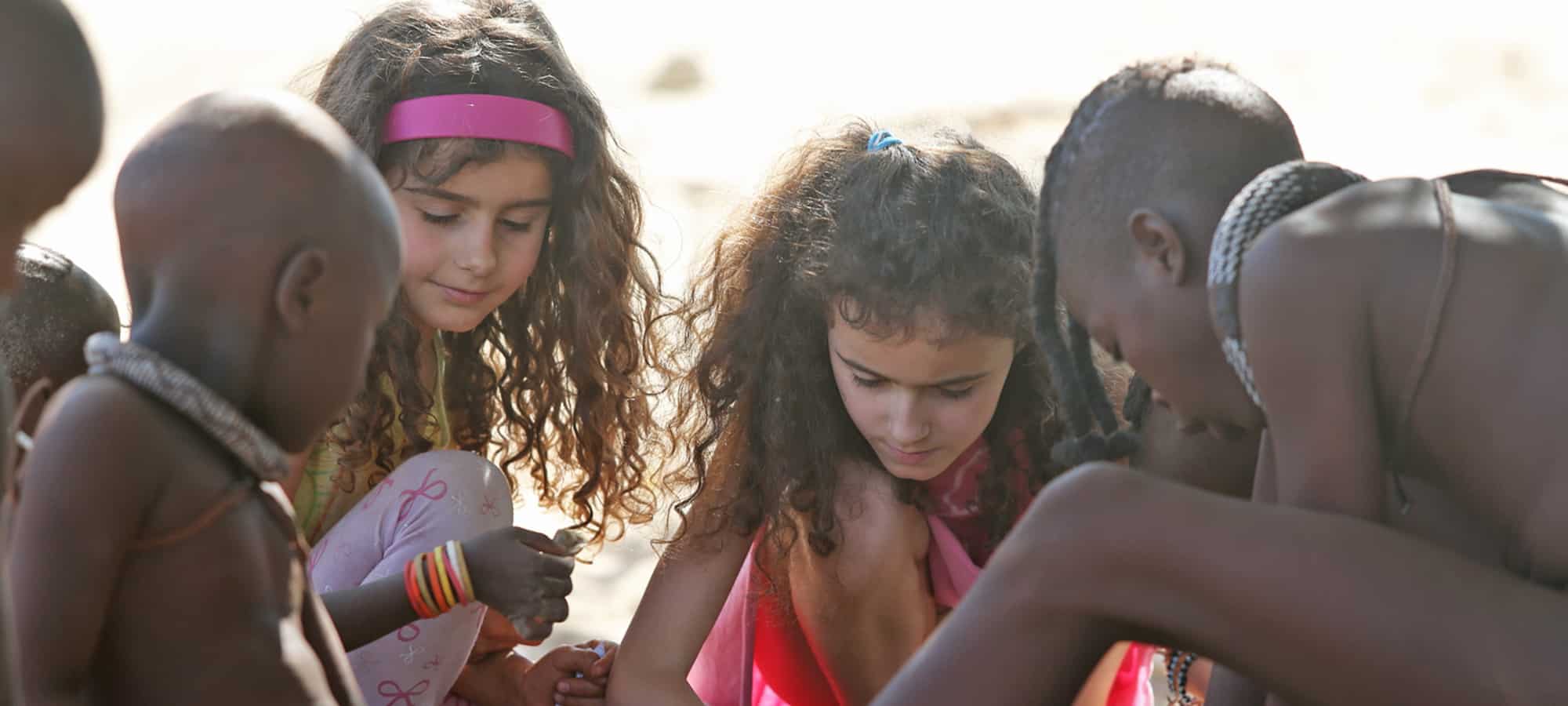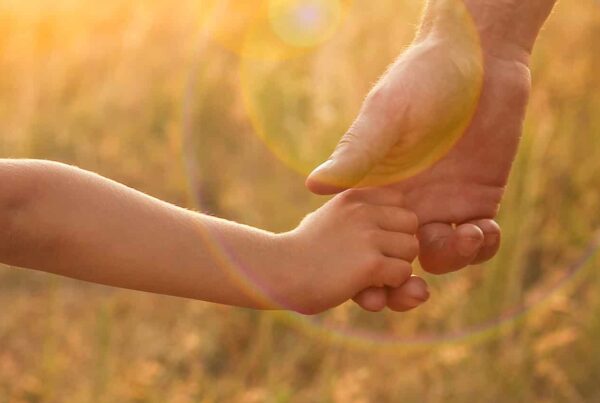We are at the frontline of a global mental health crisis.
There is an urgent need to prepare our children for their challenging future by enhancing their health and wellbeing. We need to help them have greater resilience. But how do we nourish their minds so they can pass their mental health and human virtues onto next generations? How do we use mental health and human virtues to make the planet a better place to live in? You might be surprised to learn it starts before birth – with you. It continues during pregnancy, when the baby’s development in the womb is affected by epigenetic (environmental) influences. These include a mother’s health and wellbeing, which impact on gene expression. In short, your health – including your mental health, is the foundation for your child’s health. So why does this matter and how can mindfulness help?
Why Mothers’ and Fathers’ Mental Health Matters
The World Health Organisation (2018) recognises the mental health of pregnant and new mothers as key to the health, growth, and development of very young children, wellbeing of individuals, societies, economies and our planet. Therefore, supporting maternal mental health must be a research and public priority.
Pregnancy and the postpartum period can be times of joy and anticipation. But, it can also be a time of challenges and stress for the mother and her baby, father, and family. The first 1001 days from conception can be a time of high risk for the onset or relapse of parental mental health problems. This comes with potential consequences on the caregiving function and the development of the unborn baby and child.
Evidence has increasingly linked maternal stress, depression and anxiety during pregnancy and in the early period after birth with unborn and child neurodevelopmental outcomes. This includes the capacity for social engagement, self-regulation, reactivity to stress, and cognitive skills. High levels of cortisol found in women with depression, anxiety, and stress cross the placenta and may alter baby development at critical phases.
Maternal mental health problems also hinder mother-baby relationship/bonding during pregnancy and after birth. The mother’s sensitivity and responsiveness to the baby’s body signals and later verbal communication. Additionally, depressed or stressed mothers are less likely to interpret their infants’ body cues, attune and verbally engage with them. They are also more likely to manifest irritable behaviour with them. The negative affect and preoccupations with her own issues may hinder a mother’s ability to be present and connect with her baby. This highlights the need to mitigate postnatal mental issues and support good maternal emotional availability.
A Father’s Mental Health
While the impact of the mother on child development has been studied widely, the role of the father’s mental health in supporting maternal mental health and facilitating the conditions for the mother-infant relationship from pregnancy has been neglected.
In this crucial period of transition, the mental state of fathers and mothers influence each other. This can negatively or positively impact their child’s development and wellbeing. If one of the partners is depressed the entire family system is compromised.
Therefore, there are a few essential things that you can do to help
- acknowledging the importance of the father and his mental health during pregnancy (if not before)
- supporting his role
- identifying his difficulties
- promoting his involvement in and contribution to the journey to parenthood and child development and wellbeing
Parenting Begins from Conception
With all this evidence, we know the preconception and prenatal period provides a window of opportunity to optimise the womb environment and child development. By enhancing their health and mental wellbeing – months before conception and during pregnancy, parents contribute to their child’s health.
Although the brain is sensitive to experience throughout life, experiences in the prenatal and early postnatal stages shape to a large extend our biological and psychological make up. This includes medical conditions, immune system, reaction to stress, ability to relate to others. It also includes to love and be loved, to cooperate in society and share care, to be empathic and compassionate towards others. It follows that the earliest period of life provides a unique opportunity for the primary prevention of biological, psychological and societal disorders.
Science confirms what indigenous people worldwide have known for millennia: the deep realm of consciousness and mindfulness practices before conception, during life in the womb, birth and beyond – play a critical role in human development and health and wellbeing.

Photo Credit: Dave Southwood – davesouthwood.photography
The Benefits of Cultivating Mindfulness
Mindfulness is a way of being and a way of life. Perhaps the most widely quoted definition of mindfulness comes from Jon Kabat-Zinn, “The awareness that arises from paying attention on purpose, in the present moment, and nonjudgmentally, to the unfolding of experience, moment by moment” (2003, p. 145).
Most of us are more used to its opposite – times of mindlessness. This is when we are taken away by thoughts or worries. We aren’t really conscious of what is going on and liable to repeatedly make mistakes and unwise choices. Overall, this prevents us from being in the present moment and connecting with what is going on within ourself and around us.
In the last 10 years, scientists have provided solid evidence of the benefits of mindfulness meditation in mitigating depression and anxiety. Not to mention stress symptoms – improving our capacity to regulate emotions and cope with stress.
Mindfulness for Parents
Cutting-edge research shows how practicing mindfulness – without drugs – can cultivate qualities such as selflessness, love, empathy, and more. Interestingly, these qualities are fundamental for parenting, fostering secure attachment in children and wellbeing.
Mindfulness practice can provide the psychological flexibility to adapt to the challenges of the perinatal period. The parent’s practice of present-moment awareness of both their child and their own thoughts and emotions without judgement and the acceptance of them for what they are – may be protective psychological strategies. Mindful parenting has also been found to have positive effects on child outcomes. This includes better self-regulation and lower levels of negative affect.
A large number of pregnant mothers may be either unaware of being affected by psychological issues. Or, they may have resistances against seeking support due to cultural stigmatization. Because the practice of mindfulness is considered a way of life; a self-development practice – more than a form of treatment, pregnant and new mothers may feel less stigmatized than they would if using an antidepressant or received psychotherapy, and more open to joining a mindfulness-based group.
The Prenatal Mindfulness Relationship-Based (PMRB) Program
With this in mind, I developed the Prenatal and Perinatal Mindfulness Relationship (PMRB) Program. It supports mental health and the mother-baby relationship during pregnancy, birth and beyond. A shift in focus from “when the baby arrives to the baby is already here and I am connected with this baby” is at the base of the PMRB Program. It teaches parents communication abilities, mindful awareness, calming techniques and wisdom abilities that guided mothers for millennia. Overall, this helps to create a conscious connection with bi-directional interactions far before birth.

Book Cover / Photo Credit: Dave Southwood davesouthwood.photography
Cultivating Mindfulness to Raise Children Who Thrive introduces an expanded view of human development and health, which begins before conception and moves through pregnancy, early childhood and adulthood. Although the brain is sensitive to experience throughout life, experiences in the prenatal and early postnatal stages shapes to a large extend our biological and psychological make up – medical conditions, immune system, reaction to stress, ability to relate to others, to love and be loved, to cooperate in society and share care, to be empathic and compassionate towards others. It follows that the earliest period of life provides a unique opportunity for the primary prevention of biological, psychological and societal disorders.
The book will be of interest to clinicians, policy makers, researchers, parents, and those interested in the prenatal and perinatal roots of human development and well-being. Get your copy today from www.routledge.com





